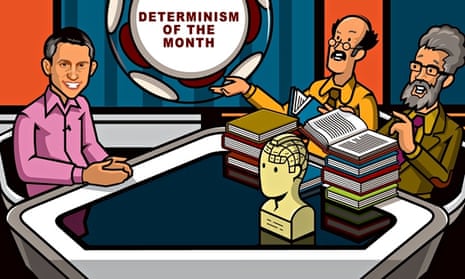A while ago I came up with a theory known, by almost nobody, as the Baniesta principle. The basic idea is that if you were to take two footballers of similar skill levels but diverse development paths – for example, the World Cup winner Andrés Iniesta and the likable Scottish midfield ace Barry Bannan – and switch them at exactly the right age, inducting the 13-year‑old Bannan into La Masia while young Iniesta is forced to tough it out in the North Lanarkshire junior leagues, the end result would be a reversal of their future careers. By now Bannan would be globally revered as an A-list trophy magnet and all-round high spec skill gnome. Iniesta would occasionally do something good on Match of the Day, but otherwise find himself at the edge of things, a highly skilled footballer conditioned to explore only the inner limits of his talent by a youth spent in a culture of rush and hack.
It looked promising. The Baniesta principle was simple, catchy, seeming to express in a single idiotic phrase an idea that was already out there, just waiting to be pulled from the air. Quietly hopeful, I sat back and waited for it to take off: my nest egg, my book franchise. Sat. And waited. The Baniesta principle. Maybe it’s a sleeper.
On the other hand, the Baniesta principle could simply be nonsense made up on the hoof, an attempt to coin a plausible theoretical term that can be tossed into a weekend newspaper article during those difficult early paragraphs where you’re already starting to zone out and think about reading the glossy magazine full of handbag adverts instead.
Indeed the reason for mentioning it here is simply to demonstrate how easy it is, how natural, for football to find itself paraded around the place under the enduringly seductive guise of bad art, or bad science, or aggressively asserted options where no opinion is necessary at all.
There is an insatiable hunger for this stuff: more chat, more theory, more wild extrapolation. Please retweet my blog on defensive interception stats in Europe’s top five leagues. Please answer some questions for my thesis on Gary Cahill, industrial decline and the search for a new masculinity. People are writing PhDs on football! People are writing blogs and articles and papers about football that are frankly too good, conveying not only insight and unblinking dedication but a kind of embarrassment of methodology, intelligence misapplied, great reserves of energy wasted.
People have always liked to talk. Argument, spume, bile, waffle: this is the wind beneath football’s wings. Now, though, these theories and false dichotomies have become oddly legitimised. No longer just operatic entertainment, football is instead cast as real-life drama, a genuine narrative of actual good v actual evil. Messi against Ronaldo really is a story of the machine world against the vibrant human spirit. José Mourinho v Pep Guardiola really does represent art and imagination versus a kind of scowling corporate nihilism, rather than simply a pair of well-groomed men making curt remarks in front of boards covered in adverts.
It is worth considering how we’ve got here, an end point in football’s great land-grab for legitimacy. As recently as the late 80s football was still considered an outsider activity. The idea put forward by its fanzine press, most notably When Saturday Comes, that you could like football and also like things such as music and films, that to like football was not also to out yourself as a dart-throwing neo-Nazi‑cum-enemy-of-society still seemed pretty novel.
This move towards and across the mainstream has reached saturation point, to the extent that reacting against the dominant culture would probably involve starting a revolutionary fanzine that demands the right to like football only a little bit, to resist any analysis, anthropological theory or the belief that a luminous mathematical truth can be found in analysis of Marcelo Bielsa’s dental records. A magazine for dissenters and philistines: When Saturday Just Moves Away A Bit, Thanks.
Quite what it all means is another matter. But no doubt this ascent has something to do with the feeling that football has gushed into an empty vacuum. It used to be said football filled a hole left by the end of the six‑day working week, or the decline of organised religion. These days it fills the holes left by pretty much everything else. We used to have intellectuals on television; wild, kipper-tied men waving their arms and talking about integrated isolation. The closest we get to that now is an ashen-faced Martin Keown describing the correct way to defend a set piece in the sombre, haunted tones of man ruminating quietly on the death of his jack russell.
And so a relatively simple sport finds itself elevated to the status of abstract intellectual discipline: music hall passing itself off as politics, business, high drama. There is a natural paradox here in the fact that football is essentially a shallow, chaotic business, but a shallow chaotic business that provides a seductive chimera of deeper meaning, of minute and precious truths lurking just beneath its endless random elements.
Basically you can chuck anything at it – theories of European identity, why Mario Balotelli is a disgrace, the Baniesta principle – and it’s likely to stick: a triumph of the creative imagination, and a moment of decisive ascent, for now, for football’s own New Seriousness.

